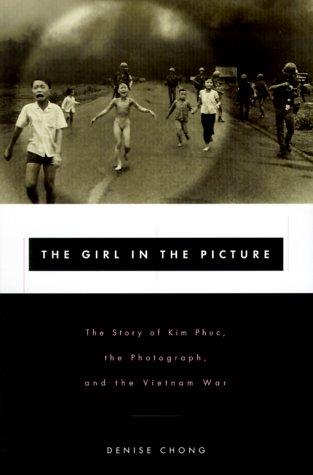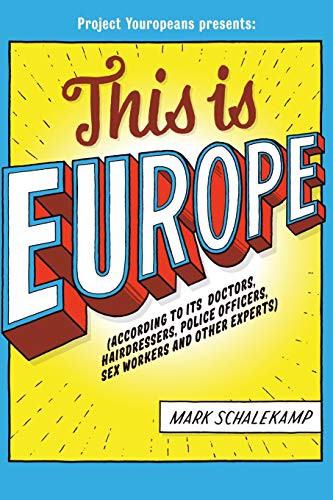I did not except a book with this title to be this adorable. I am only sad it wasn't longer. Apart from the likable found family of characters, I also really enjoyed the world building. I'm definitely reading more from the author.
User Profile
Storyteller, author.
This link opens in a pop-up window
Tarkabarka's books
User Activity
RSS feed Back
Tarkabarka started reading NYX VOL. 1: WHAT COMES NEXT WILL BE MARVELOUS by Jackson Lanzing

NYX VOL. 1: WHAT COMES NEXT WILL BE MARVELOUS by Jackson Lanzing, Collin Kelly, Francesco MORTARINO
This isn't a book about X-Men. This is a book about mutants living past the end of their world and …
Tarkabarka started reading This is Europe by Mark Schalekamp
Tarkabarka reviewed Werecockroach by Polenth Blake
Unexpectedly adorable
5 stars
I did not except a book with this title to be this adorable. I am only sad it wasn't longer. Apart from the likable found family of characters, I also really enjoyed the world building. I'm definitely reading more from the author.
Tarkabarka finished reading Werecockroach by Polenth Blake

Werecockroach by Polenth Blake
Rin moves into a new flat on the day the aliens arrive. Their new flatmates are laid-back Sanjay and conspiracy …
Tarkabarka started reading Ace Voices by Eris Young

Ace Voices by Eris Young
How do we experience attraction? What does love mean to us? When did you realise you were ace?
This …
Tarkabarka started reading Queering the Tarot by Cassandra Snow

Queering the Tarot by Cassandra Snow
Tarot is best used as a tool for self-discovery, healing, growth, empowerment, and liberation. Tarot archetypes provide the reader with …
Tarkabarka started reading Las Malas by Camila Sosa Villada

Las Malas by Camila Sosa Villada
Cuando llegó a Córdoba capital para estudiar en la universidad, Camila Sosa Villada fue una noche, muerta de miedo, a …
Tarkabarka started reading Werecockroach by Polenth Blake

Werecockroach by Polenth Blake
Rin moves into a new flat on the day the aliens arrive. Their new flatmates are laid-back Sanjay and conspiracy …
Tarkabarka finished reading The Girl in the Picture by Denise Chong

The Girl in the Picture by Denise Chong
On June 8, 1972, nine-year-old Kim Phuc, severely burned by napalm, ran from her blazing village in South Vietnam and …
Tarkabarka started reading Tarot for the Hard Work by Maria Minnis
Tarkabarka reviewed 78 Acts of Liberation by Maria Minnis
A new structure and a new context
4 stars
I picked up this book because I was curious about how it interprets tarot cards in the context of social movements - but I got more than that. It completely rearranges the tarot, while keeping traditional symbols and numbers, into a non-linear, community-based, Justice-centered system. It also, apart from of the examples of activism, has very deep, interesting things to say about the possible menanings of each card. And I loved the examples. I learned a lot about social movements - and also the many different facets of activism, from allyship through communication to sustainability. I loved it that instead of taking cards one by one, it highlighted relationships between Majors and Minors of the same numbers, and their references to activist work as a whole. I'm a little sad the court cards didn't get more attention.
I picked up this book because I was curious about how it interprets tarot cards in the context of social movements - but I got more than that. It completely rearranges the tarot, while keeping traditional symbols and numbers, into a non-linear, community-based, Justice-centered system. It also, apart from of the examples of activism, has very deep, interesting things to say about the possible menanings of each card. And I loved the examples. I learned a lot about social movements - and also the many different facets of activism, from allyship through communication to sustainability. I loved it that instead of taking cards one by one, it highlighted relationships between Majors and Minors of the same numbers, and their references to activist work as a whole. I'm a little sad the court cards didn't get more attention.
Tarkabarka finished reading 78 Acts of Liberation by Maria Minnis
Tarkabarka started reading 78 Acts of Liberation by Maria Minnis
Personal journeys and tarot practice
5 stars
A fascinating collection of personal essays as well as practical advice on queering the tarot. I enjoyed the different authors' points of view, and the stories of their personal journeys alongside the tarot practice. These kinds of books are much more interesting to me than the ones that solely focus on advice - and diverse voices of queerness spoke authentically about finding new ways to read tarot. Some of the essays gave me whole new perspectives on things I would like to try, such as reframing the court cards, or finally trying to read reversed cards (this speaks to how good that essay was, I never wanted to read reversed before!). My favorite essay, however, was the one on the High Priestess and identity. It was deep understanding, poetry, personal storytelling, and tarot excellence all in one.
A fascinating collection of personal essays as well as practical advice on queering the tarot. I enjoyed the different authors' points of view, and the stories of their personal journeys alongside the tarot practice. These kinds of books are much more interesting to me than the ones that solely focus on advice - and diverse voices of queerness spoke authentically about finding new ways to read tarot. Some of the essays gave me whole new perspectives on things I would like to try, such as reframing the court cards, or finally trying to read reversed cards (this speaks to how good that essay was, I never wanted to read reversed before!). My favorite essay, however, was the one on the High Priestess and identity. It was deep understanding, poetry, personal storytelling, and tarot excellence all in one.





